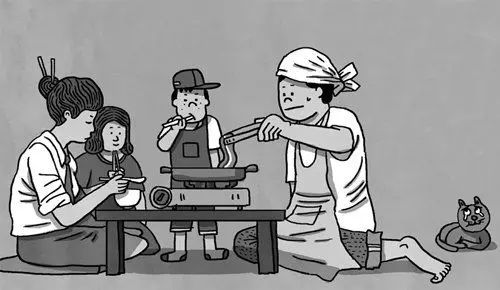Gender roles are rapidly changing. Now sons are hearing from their mothers or wives what women used to hear all the time from their fathers or husbands.
The growing economic power of women is the major driving force as better education allowed more and more women to work in high-paying professional jobs.
An increase in the number of couples where women are older than men also led to changes towards more matriarchal families.
In 2014, the proportion of first-time married couples where the woman was older than the man was 15.8 percent, higher than that of couples of the same age. The proportion of couples where the man was older has dwindled apace.
One 34-year-old woman who married a man four years her junior said, "Because I had more experience and savings and a higher salary than my husband, I naturally took over the leadership in the family. I manage both of our incomes."
More men are voluntarily relinquishing their patriarchal hegemony, relieving themselves of the duties of a breadwinner.
This seems to be a global trend, as suggested by the coinage "new macho," which highlights a new archetype of manliness in which men care for their kids, do housework and are sensitive with their partners.
But Hanna Rosin, author of "The End of Men: And the Rise of Women," points out that most Korean men are struggling to catch up with the current trend toward matriarchy, even if there are 156,000 househusbands in Korea, and women perform better in university entrance exams and civil servants and bar exams.
(THE CHOSUNILBO)
 简体中文
简体中文

